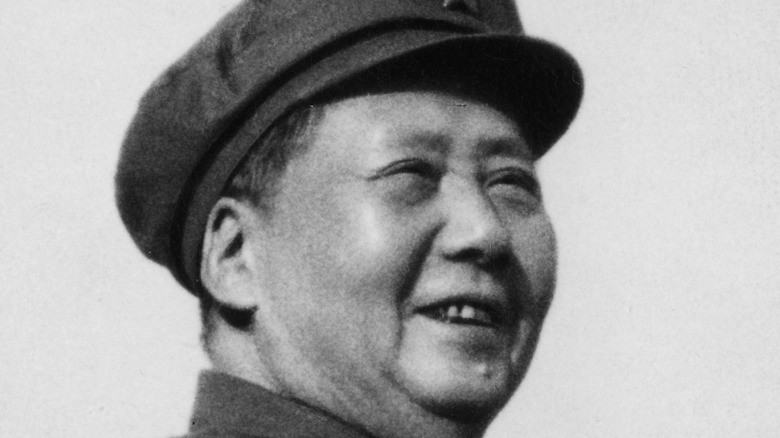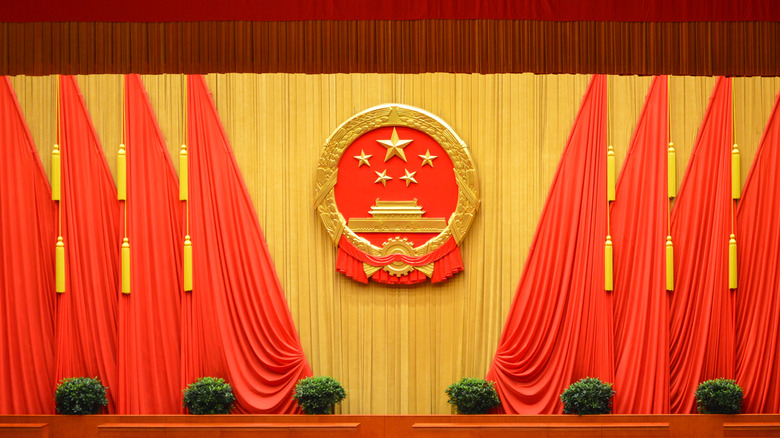What Really Happened After Mao Zedong Died?
At the conclusion of the Chinese Civil War, Mao Zedong had gone from the leader of an almost crumbling guerrilla force that had to contend with the Nationalist Chinese and Imperial Japanese armies to that of almost the entire Chinese mainland. While control over his new holdings was far from uncontested, as the rival Republic of China still survived on the island of Taiwan, he had essentially won. A hallmark of Mao's reign was the disastrous "Great Leap Forward," which wound up killing millions of his people, predominantly through starvation.
During the Korean War, his nation became a vital component in the Soviet effort to push U.N. forces out of the peninsula. Yet with Stalin's death, a deep divide formed known as the Sino-Soviet split (via ThoughtCo). In the face of Nikita Khrushchev's efforts to de-Stalinize the Soviet Union, Mao came to see himself as the true head of the Communist world. The rivalry nearly led to open conflict at their border, and while the two eventually began to cooperate again during the Vietnam War, two rival spheres of influence emerged. After his country eventually replaced Taiwan in the U.N., Mao openly welcomed amicable relations with America before dying in 1976.
Mao's death opened China to reform
There was no clear successor to Mao Zedong in the period immediately following his death, and it seemed like power would be vested in the "Gang of Four" — a group of four revolutionary-era Maoist party members who had previously been involved in state media among other activities (via Britannica). Yet a month after Mao's death, they were arrested for treason as part of a new anti-corruption drive (which also led to the arrest of Mao's wife Jiang Qing, whose extensive corruption earned her a commuted death sentence) led by figures such as Deng Xiaoping.
As de facto leader of the CCP until 1989, Xiaoping, despite his loyalty to the party, recognized early on a need for reform. He supported the introduction of market economics, the one-child policy to combat overpopulation (per the BBC), and the "one country two systems" policy, which allowed Hong Kong to operate autonomously until recently (via CNBC). While he set the stage for China to become an economic superpower, his reputation is not without major faults as the Tiananmen Square massacre, which killed thousands of protesters, inadvertently occurred on his watch.

